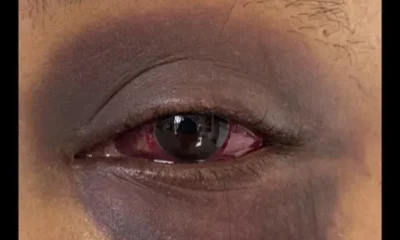News
South Africans Unite: Calls Grow to Declare Gender-Based Violence a National Disaster

Nationwide protests gain momentum as femicide crisis deepens
South Africa is on edge as calls grow louder to declare gender-based violence (GBV) a national disaster. Ahead of the G20 Summit, the NGO Women For Change has called for a national shutdown on 21 November, urging women and members of the LGBTQI+ community across the country to down tools, in workplaces, universities, and homes to demonstrate their collective power.
The movement has rapidly gained momentum online, with thousands of people changing their profile pictures to purple in solidarity. Streets, social feeds, and student campuses are turning into spaces of protest and remembrance, united by one shared demand: “Enough is enough.”
The call for a shutdown: a nation reaches boiling point
According to Women For Change, South Africa’s femicide rate is six times higher than the global average, with at least 15 women murdered every day. For many, the situation has reached a crisis point one that can no longer be addressed through awareness campaigns alone.
“Declaring GBV a national disaster isn’t just symbolic,” says one organiser. “It would mean mobilising the same kind of urgency, funding, and accountability we saw during the COVID-19 pandemic but this time, to save the lives of women and queer people.”
The NGO has asked supporters to wear black and spend no money on 21 November to illustrate the economic and social impact of women’s absence, a powerful reminder that the country cannot function without them.
Students take to the streets
The movement has found strong allies among the youth. Earlier this week, Wits University students staged protests following rape allegations involving a student representative council member and another student. The demonstrations, marked by chants and purple ribbons, reflected the growing frustration among young South Africans who feel the justice system continues to fail survivors.
One student protester said: “We are tired of the delays, the excuses, the lack of accountability. GBV has become normalised and that’s unacceptable.”
A new initiative: training GBV first responders
In a parallel effort to tackle the crisis, the Special Investigating Unit (SIU) has announced the GBV First Responder Programme, a multi-sectoral initiative involving the departments of Justice, Police, Health, and Social Development, alongside civil society and traditional leaders.
According to SIU spokesperson Kaizer Kganyago, the programme aims to train 5,000 certified GBV first responders by 2030, with the first phase rolling out between 2025 and 2026 in Gauteng, KwaZulu-Natal, and the Eastern Cape. The project also includes a digital response tool to report and coordinate urgent cases.
“If you’re passionate about making a difference, join us,” said Kganyago. “Registration details will be shared later this year through our partner organisations.”
“I’ve been waiting six years for justice”
For survivors like Izelle Venter from Pretoria, these promises feel bittersweet. Her assault case has been postponed yet again this time to February 2026.
“Next year it will be seven years,” she says. “They keep using stalling tactics. Every time I think it’s moving forward, it’s delayed again.”
Venter’s story echoes those of countless South African women who face a justice system that is slow, under-resourced, and often retraumatising. Advocacy groups like Ribbons of Justice, led by Lorraine Slippers, have pledged to march alongside Women For Change on November 21. “We’ll be there,” Slippers said. “For Izelle, for every woman still waiting to be heard.”
A country at a crossroads
The shutdown has ignited a national conversation about accountability and reform. Social media platforms are overflowing with messages of support, frustration, and determination. From Cape Town to Polokwane, the tone is clear, South Africa is tired of mourning, tired of hashtags, and tired of hollow promises.
Declaring GBV a national disaster would be more than a legal classification, it would be a statement of moral urgency. It would demand systemic reform: faster investigations, better survivor support, and proper funding for prevention programmes.
As November 21 approaches, the question is no longer if South Africans will stand up, but whether the state will finally stand with them.
{Source: The Citizen}
Follow Joburg ETC on Facebook, Twitter , TikTok and Instagram
For more News in Johannesburg, visit joburgetc.com



























